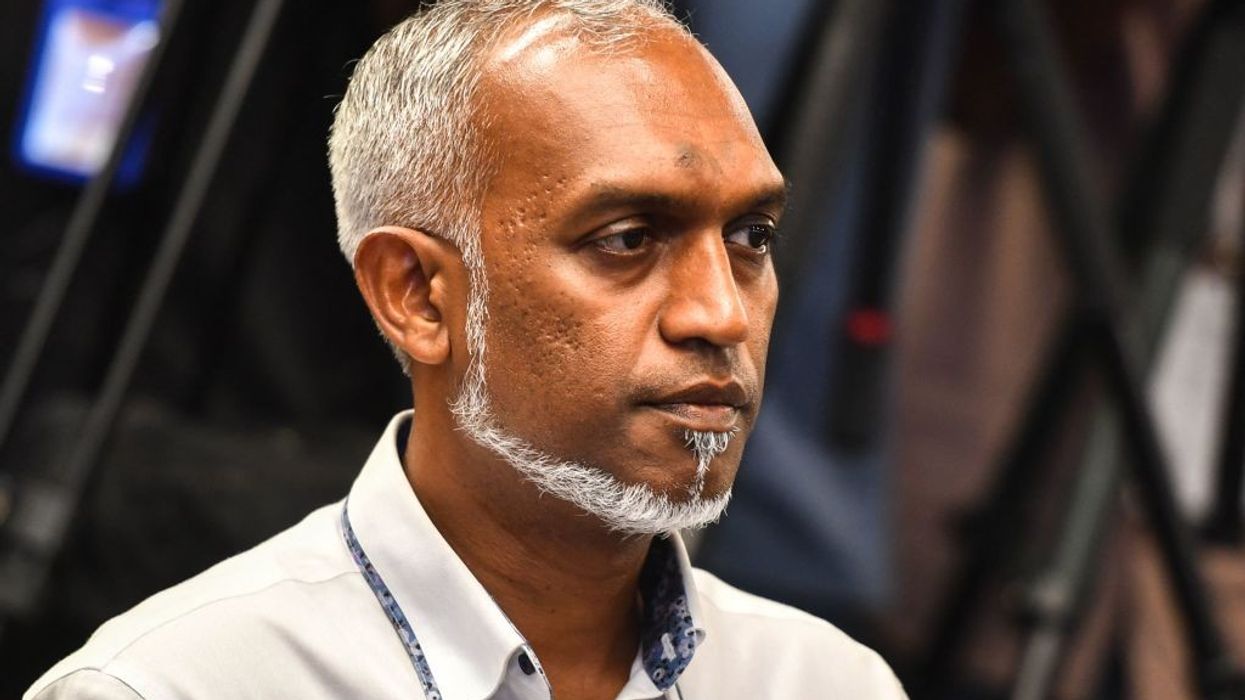THE president-elect of the Maldives, Mohamed Muizzu, has marked his victory with a pledge to end the foreign military presence in his small but strategically placed atoll nation.
Muizzu, 45, addressing his first public rally after winning the runoff election on September 30, stopped short of naming India, the only foreign power with a military deployment in the archipelago.
He won an "India-out" campaign after New Delhi placed a small unit of security personnel to operate four reconnaissance aircraft gifted to the Maldives to patrol its vast maritime territory.
"We will be sending back military forces based in the Maldives according to law, and for sure we will do that accordingly," Muizzu said at the rally in the capital Male on Monday night.
"The people who brought... military forces don't want to send them back, but the people of the Maldives decided," he said.
Outgoing president Ibrahim Mohamed Solih had realigned the nation's relations with traditional benefactor India, after his predecessor Abdulla Yameen moved the Maldives into Beijing's orbit, borrowing heavily from China for infrastructure projects.
Muizzu is a proxy of Yameen who was barred from last month's election because of his criminal conviction for corruption.
Within hours of his victory, Muizzu secured the release of Yameen, who was serving an 11-year jail sentence at the high-security Maafushi prison, and transferred him to house arrest in Male.
Muizzu, who is also the current mayor of Male, brushed aside media descriptions of him as a pro-China leader and said he will be "pro-Maldives".
"My top priority will be the Maldives and its situation," Muizzu said. "We will be choosing to be pro-Maldives. Any country who respects and obeys our pro-Maldives policy is considered a close friend of the Maldives."
India's prime minister Narendra Modi was among the first leaders to congratulate Muizzu on October 1.
New Delhi is "committed to strengthening the time-tested India-Maldives bilateral relationship", Modi posted on social media platform X.
China congratulated Muizzu last Monday (2), saying it "respects the choice of the Maldivian people".
"China is willing to work with the Maldives to consolidate the traditional friendship, deepen mutually beneficial cooperation and push for continuous new progress," Beijing's foreign ministry said in a statement.
Muizzu told a meeting with Chinese Communist Party officials last year that his party's return to office would "script a further chapter of strong ties between our two countries".





